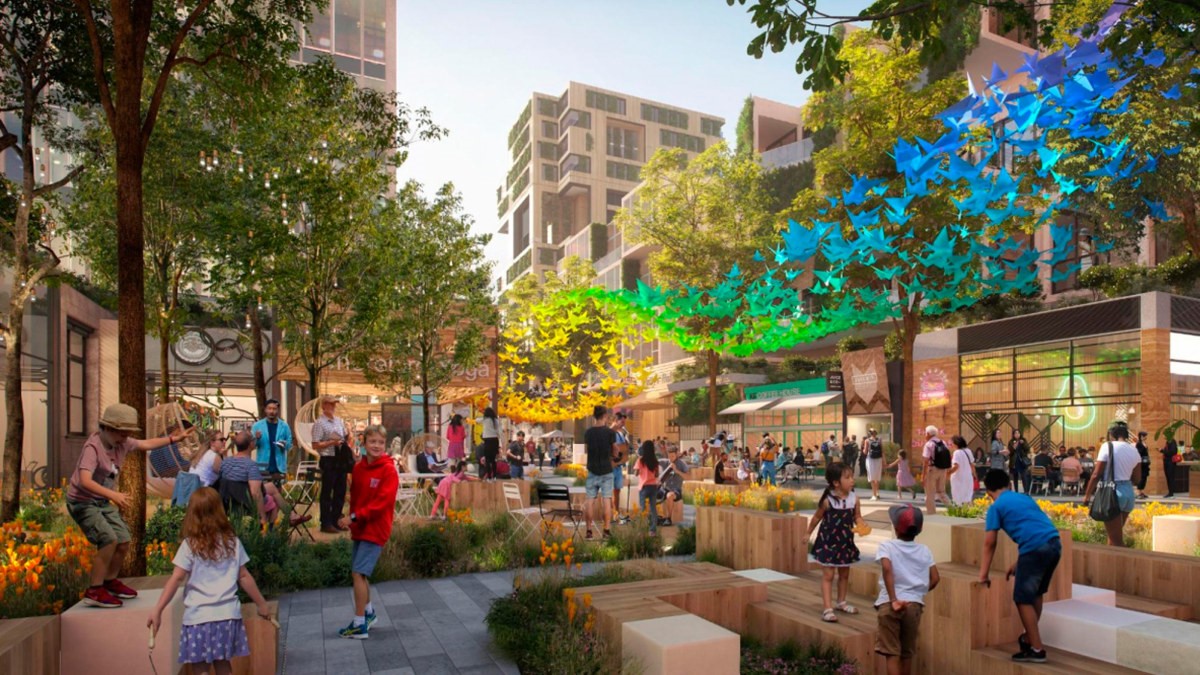Google’s plan to build 15,000 new homes in Silicon Valley just got more complicated
By Nate Berg
An ambitious plan by Google to build 15,000 homes and millions of square feet of offices in the heart of Silicon Valley may have just fallen apart.
The tech giant recently announced that it had severed ties with multinational developer Lendlease on a $15 billion series of neighborhood-scale developments in and around San Jose, California. The projects, announced last year, were intended to transform large swathes of Google-owned land in San Jose, Sunnyvale, and Mountain View into four dense, walkable, mixed-use neighborhoods. They were to add thousands of units of mixed income housing in each neighborhood, as well as several million square feet of commercial buildings and office spaces. The master plans for these neighborhoods were intended to shift the urban makeup of Silicon Valley in a more livable direction while also addressing a deep housing shortage.
“We all know this area is critically undersupplied with housing, and housing of all types,” Claire Johnston, managing director of Google Development Ventures at Lendlease, told Fast Company when the project was announced last September. “What we’re seeing is that people want to live in the Bay Area and Silicon Valley but they’ve got supply constraints. So it’s difficult, and as a result it’s expensive.”

Now Google and Lendlease have mutually backed away from the proposed solution, characterizing the situation as a strategic redirection.
“As we’ve shared before, we’ve been optimizing our real estate investments in the Bay Area, and part of that work is looking at a variety of options to move our development projects forward and deliver on our housing commitment,” say Alexa Arena, Google’s senior director of development, in a statement. “We appreciate Lendlease and the work the team has done to get us to this point.”
“While we have enjoyed an excellent and highly productive working relationship with Google, it became clear that our respective priorities have shifted,” says Tony Lombardo, Lendlease’s global CEO, in a statement. “The end of these agreements allows both organizations maximum flexibility to pursue other strategies.”
It’s hard to not read between the lines of this partnership’s dissolution, especially for a high-profile project that had aims to build many units of housing alongside ample office space. At a time when cities across the country are seeing record high office vacancies, any major new development project with an office component is sure to cause some apprehension. Google and Lendlease parting ways suggests that large projects that are anchored to office developments—even ones as needed as dense housing in one of the country’s most expensive markets—will require some significant reconsideration.
The projects are not dead, according to a Google spokesperson, who notes that the company is looking to work with other developers and capital partners to push the project forward. That Google’s Arena refers to this next phase as delivering on Google’s “housing commitment” may indicate that its next steps are less focused on the commercial side of the original plan.
Any major changes to the makeup of these proposed neighborhoods would require new rounds of public reviews and approvals, stretching the timeline of a development that was originally targeted for completion within 15 years. But those extra and sometimes grueling steps may be worth the time, especially if the alternative is sticking with a plan that includes an excess amount of office space that few seem interested in using.
(19)

